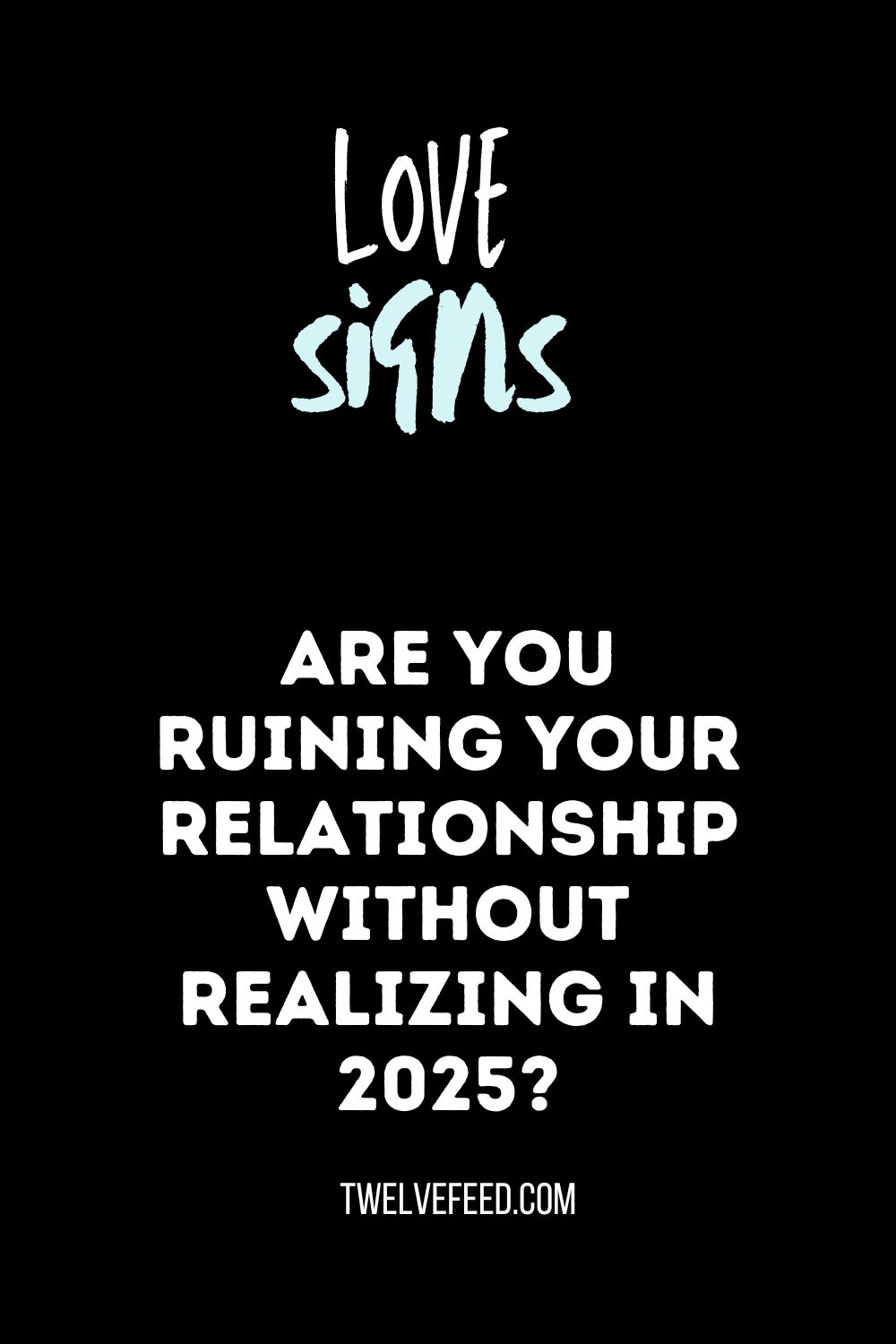
Relationships are fragile, and sometimes we damage them without even knowing it. It’s easy to assume that big mistakes, like cheating or lying, are the only things that can destroy a relationship. However, small, everyday habits or patterns in how we communicate and behave can have a massive impact over time. Many of us unknowingly contribute to the downfall of our relationships simply because we aren’t aware of how our actions affect our partners. Here’s how that happens and what to watch out for.
1. Communication Breakdown: Silent Killers of Relationships
Communication is the heart of any relationship, and not just in big conversations about life plans or problems. The small, daily exchanges—how you greet each other in the morning, how you say goodbye, how you react to small frustrations—all contribute to the overall atmosphere between two people.
For example, let’s say one partner makes a sarcastic comment regularly. It may seem harmless or even funny, but over time, sarcasm can erode trust and intimacy. It can make the other person feel belittled or unimportant, even if that’s not the intention. Constant negative tones, eye-rolling, or sighing during conversations also slowly chip away at the relationship. These reactions are often subconscious but send a clear message of irritation or impatience to your partner.
2. Taking Your Partner for Granted
One of the easiest traps to fall into is taking your partner for granted. In the early stages of a relationship, we tend to show our appreciation more often. As time goes on, it becomes easy to assume that your partner knows you love and appreciate them, but neglecting to say it or show it regularly can lead to feelings of neglect.
When you stop acknowledging the little things they do, like making your coffee or asking how your day was, it can make them feel unappreciated. Over time, this can cause resentment to build, even if your partner doesn’t voice their dissatisfaction. Remember, gratitude keeps the bond strong, and a lack of it weakens emotional connections.
3. Expecting Your Partner to Read Your Mind
In many relationships, one of the biggest mistakes is expecting your partner to just know how you’re feeling or what you need without expressing it. People often fall into the trap of thinking, “If they loved me, they would know what I want without me having to say it.” But this sets unrealistic expectations. No matter how close you are, your partner is not a mind reader.
This often leads to frustration. You may feel like you’re constantly giving, but your needs aren’t being met because you’re not communicating them. Instead of waiting for your partner to guess what you want, be open about your feelings, desires, and concerns. Honest communication prevents misunderstandings and reduces the chances of feeling neglected.
4. The Power Struggle: Fighting to Be Right
Every relationship has disagreements, but how you handle them makes all the difference. If you find yourself in constant power struggles, where the main goal is to win the argument rather than resolve the issue, you’re likely causing harm to your relationship.
When arguments turn into competitions, it becomes less about understanding each other and more about proving a point. This can create an unhealthy dynamic where one partner always feels like they’re “losing” and can lead to long-term bitterness. Instead, focus on finding common ground and solving the problem together rather than proving who’s right.
5. Neglecting Physical and Emotional Intimacy
Intimacy is about more than just physical touch—though that’s important too. Emotional intimacy, like being vulnerable with each other and sharing your thoughts, fears, and dreams, creates a strong bond between partners. But as time passes, it’s easy to let these moments slip away.
You might get caught up in the stress of daily life—work, kids, personal responsibilities—and forget to prioritize your partner. Neglecting to nurture this closeness can create a distance that’s hard to bridge later. Simple acts like holding hands, checking in on each other’s feelings, or making time for a date night can keep that intimacy alive and remind both of you why you’re together in the first place.
6. Holding Onto Grudges
It’s impossible to avoid conflict in a relationship, but holding onto grudges after an argument can be far more destructive than the fight itself. When you refuse to let go of past issues, resentment builds up and causes tension.
Instead of allowing unresolved conflicts to pile up, practice forgiveness and address issues when they arise. Holding onto anger or disappointment only serves to create a barrier between you and your partner. Letting go of grudges will make your relationship healthier and more resilient in the long run.
7. Losing Your Identity in the Relationship
Sometimes, people become so immersed in their relationship that they lose touch with who they are as individuals. This can happen when one partner sacrifices too much of their time, hobbies, or friendships for the sake of the relationship. While compromise is essential, giving up too much of yourself can lead to feelings of resentment or suffocation.
Maintaining a sense of self is crucial. It allows you to bring something fresh and exciting into the relationship, and it also keeps the attraction alive. Make time for your interests, hobbies, and friendships outside the relationship, and encourage your partner to do the same.
8. Ignoring Your Partner’s Needs
Even if your partner isn’t complaining, that doesn’t mean all their needs are being met. Sometimes, we get so caught up in our routine and problems that we forget to check in with our partner on a deeper level. What do they need from you emotionally, physically, or even spiritually?
Take time to ask your partner what they need more of in the relationship. You might be surprised at what they say. It could be something as simple as more quality time, deeper conversations, or more affection. Meeting your partner’s needs helps strengthen the bond and ensures both people feel satisfied in the relationship.
Conclusion
Relationships don’t fall apart overnight; they crumble slowly, often due to small habits and behaviors we don’t realize are harmful. By being mindful of how you communicate, avoiding power struggles, nurturing intimacy, and staying connected to yourself, you can prevent the slow erosion of your relationship. The key is to remain aware, communicate openly, and always make time for each other. By addressing these common issues, you can strengthen your relationship and make it more resilient in the face of challenges.





